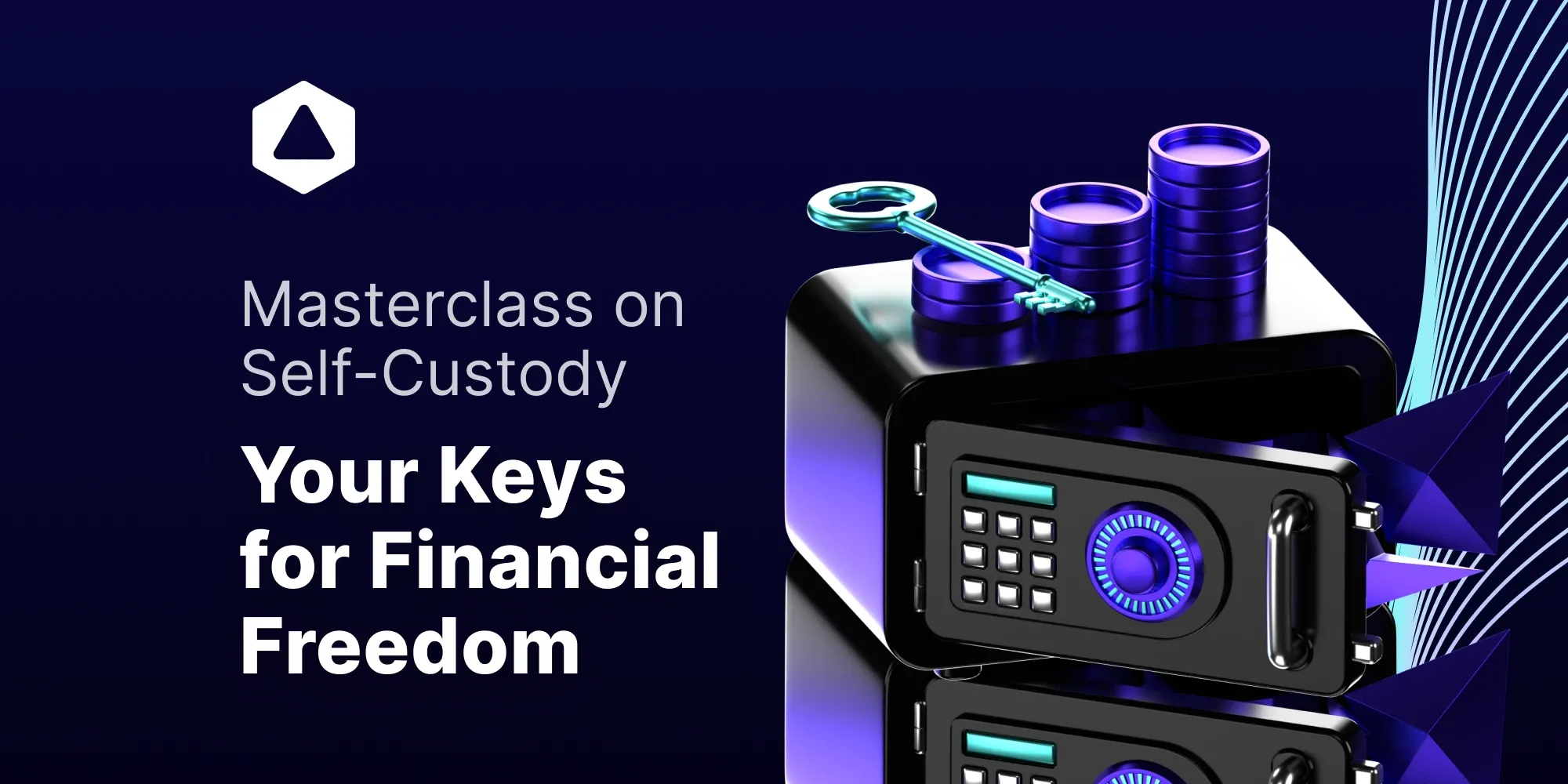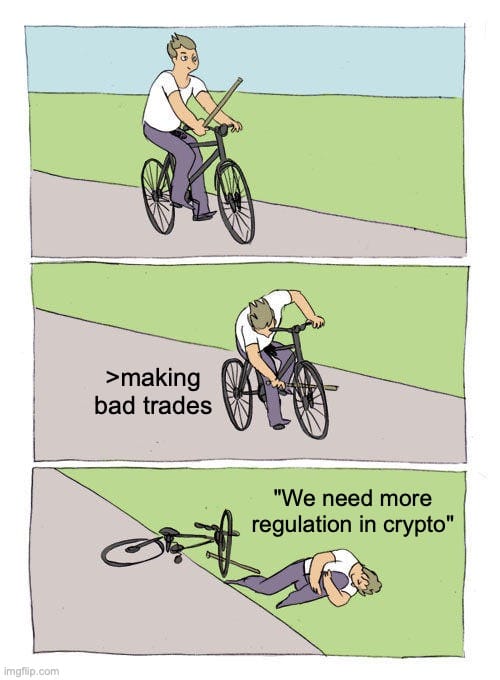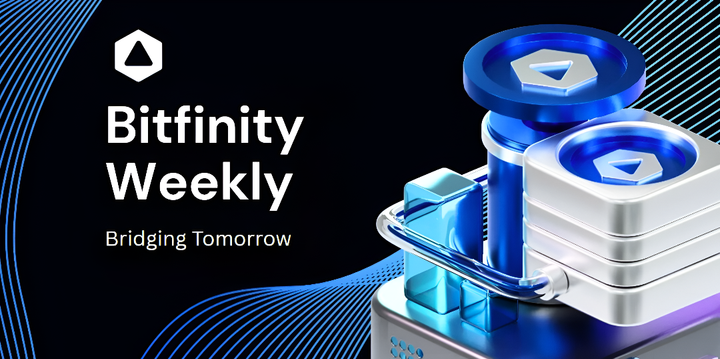Bitfinity Weekly: Regulatory Reckoning

Welcome to Issue #81 of Bitfinity Weekly for our #BITFINIANS community. If this newsletter was forwarded to you, sign up here.
What's in Today's Email?
- Global Crypto News
- This Week in our Blog
- NFT Market Bytes
- Tweet of the Week
- Meme Time
- A Matter of Opinion
Global Crypto News
🧑⚖️ Main Character Curse: Binance, the world's largest centralized crypto exchange, has a new CEO in Richard Teng . Founder and ex-CEO Changpeng Zhao (also known as CZ) pled guilty in a U.S. federal court this Tuesday to violating anti-money laundering laws, and agreed to step down as CEO as part of a $4.3 billion dollar resolution with the Department of Justice. CZ is expected to be sentenced to 1-10 years in jail. $BNB, Binance's cryptocurrency, plunged 8% in value when news of CZ's guilty plea broke.
🌡️ Temperature Check: Newly resurrected crypto firm Celsius is pivoting to Bitcoin mining after the U.S. Securities and Exchange Commission (SEC) gave feedback on the former crypto lender's reorganization plans, which wanted to originally offer staking services alongside mining. Celsius, which went bankrupt last July, is expected to finish implementation in 2024, with former customers expected to receive $0.25 USD per $CEL, Celsius' utility token.
🇦🇷 Presidential Promises: Libertarian candidate Javier Milei was elected as the new president of Argentina this past Sunday. Milei, a vocal proponent of the free market, vowed to dismantle Argentina's central bank, alongside other government agencies such as the Ministry of Sports and Tourism. Bitcoiners and crypto enthusiasts around the world see this as a win for crypto, as Milei has praised Bitcoin as a "return of money to its original creator--the private sector".
🚀 A Blast Pace: Blast, an upcoming Ethereum layer-2, has seen a drastic rise in TVL (total value locked), holding well over $405 million just days after their launch announcement on Tuesday. Led by 'Pacman' (Tieshun Roquerre, who co-founded Blur, an NFT marketplace favored by traders), speculators have been depositing their funds into the Blast network, despite the fact that a bridge is not set to go live until February. Others have expressed concerns about Blast's smart contract, particularly regarding multi-sig operator risk.
This Week in our Blog
As the saying goes: "Not your keys, not your crypto", self-custody is an integral part of DeFi. Let this article serve as your personal guide to becoming a self-custody pro so you can be your own bank.

Binance has agreed to a historic and massive settlement this week with U.S. regulators. What does this mean for the crypto industry? We discuss this major event poised to affect the industry's state regarding regulatory compliance.

NFT Market Bytes
👟 Let's Get Phygital: Nike opened up public presale for their new RTFKT Dunk Genesis sneakers on Monday, allowing anyone to order the shoes without owning an associated NFT. In fact, the shoes come equipped with embedded NFC chips which allow owners to "0btain a digital collectible <...> and connect the physical product", thus giving physical sneakerheads easy onramps to collecting NFTs.
📰 First: Monday saw the launch of the Immutable Record NFT collection on the Kadena blockchain. This collection frames the concept of blockchains as an immutable record of time by using unique New York Times page reprints to link each NFTs to specific moments in modern history. The creators of Immutable Records NFTs is none other than Stuart Haber and Scott Stornetta, creators of the very first blockchain, predating Bitcoin. Haber and Stornetta are the most cited authors in the original Bitcoin whitepaper.
🪂 All A Blur: Popular NFT marketplace Blur concluded its Season 2 airdrop on Monday of their native token ($BLUR). Qualifying Blur users were rewarded with a double dose of good news this week as the token price surged more than 22% on Friday, following token listing on Binance.
Tweet of the Week
🌌With enigmatic wizardry 🎩and boundless creativity, behold one collection to reign supreme 👑, a digital tapestry of art interwoven with the mystique of the ages.🔮🎨
— Bitfinity Network (@bitfinitynet) November 24, 2023
The Bitfinity BTC Gold Coin joins the majestic
Bitfinity Ape Ascension Collection!🦍✨
RT A sneak peek👇 pic.twitter.com/S8sK0lFowB
Peep the comments section! 👀
Meme Time

A Matter of Opinion
Christine Legarde, the decidedly anti-crypto European Central Bank (ECB) president, admitted on Friday that one of her sons "lost almost all the money that he had invested" despite her numerous warnings. "So when I then had another talk with him about it, he reluctantly accepted that I was right," she told university students in a Frankfurt, Germany town hall.
While the anecdote of her son's failed investments adds a humanizing and nuanced perspective to Legarde's personal story, it also gives insight into how individual regulators view crypto. That is, they seem to understand it from a distance which is dictated primarily by a lack of perspective.
Last year, Legarde boldly declared that all crypto assets are "worth nothing <...> based on nothing", and that the possibility of Bitcoin being held by central banks was "out of the question". This attitude is obviously concerning for those who want to see Decentralized Finance flourish. The ECB is a prime component of the European Union and one of the world's most important central banks. As such, Legarde holds significant influence over global regulatory decisions.
Trading is not easy, whether you're in crypto, traditional stocks, or other commodities. Yes, the lack of regulation adds another layer of difficulty as scammers can spin up a malicious token contract in minutes. However, the traditional markets are hardly any better for the average retail investor.
For example, penny stocks (cheap, sub-$1, common shares of small public companies) have a failure rate of over 90%, averaging annual returns of negative 24%. Not only that, but traditional investing is systematically disadvantageous to regular people who want to conduct trades. It's public knowledge that institutional investors are allowed privileges that retail investors are not, such as after-hours trading and dark pools. Where are the regulators to protect investors in traditional markets?
Connect with Bitfinity Network
Bitfinity Wallet | Bitfinity Network | Twitter | Telegram | Discord | Github

*Important Disclaimer: While every effort is made on this website to provide accurate information, any opinions expressed or information disseminated do not necessarily reflect the views of Bitfinity itself. The information provided here is for general informational purposes only and should not be considered as financial advice.






Comments ()